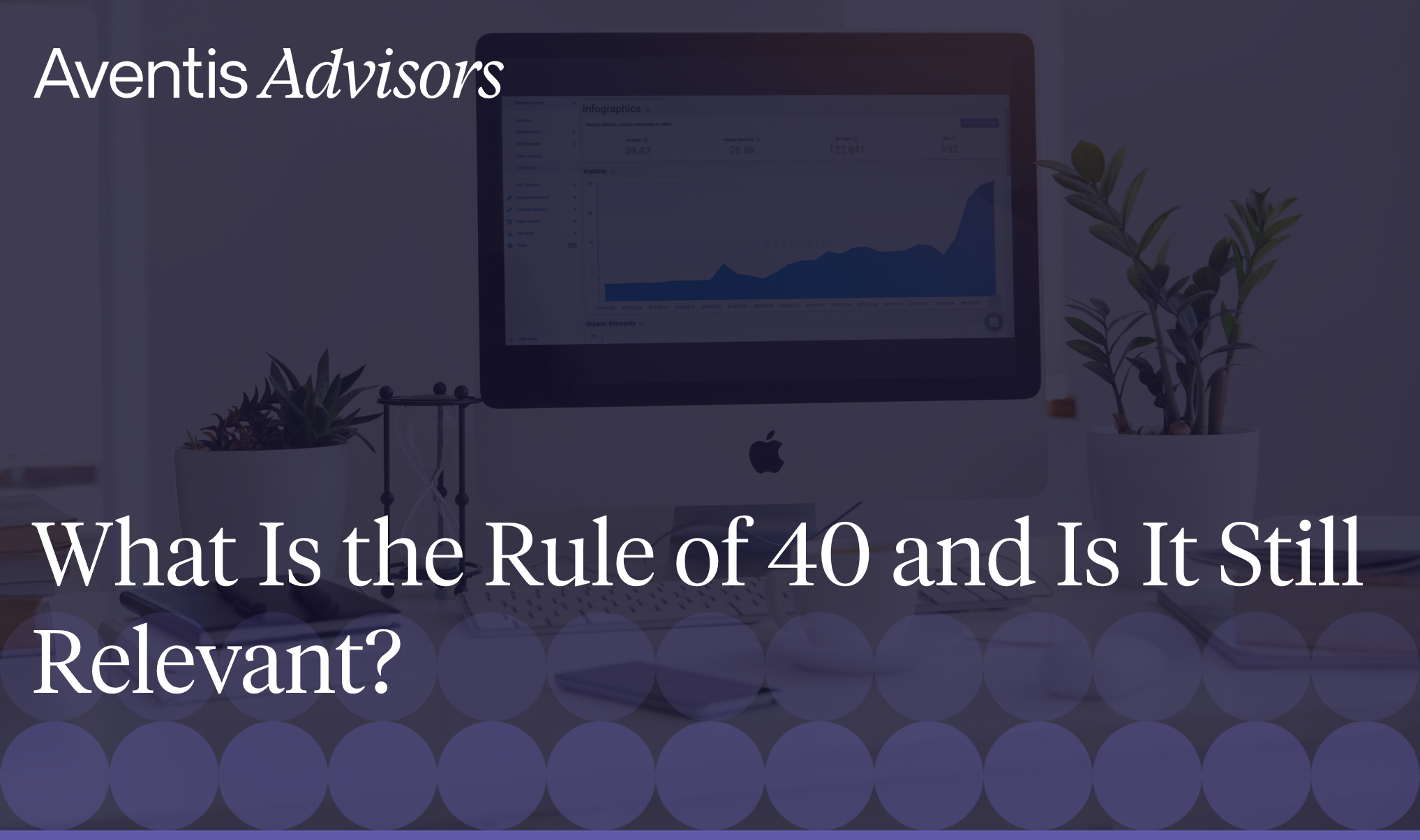As a business owner, understanding the value of your company is crucial for a variety of reasons. From raising capital, planning an exit strategy, or entering into mergers and acquisitions, knowing your company’s worth can help you make well-informed decisions and maximize your returns.
For the buyers, private companies present another set of challenges. Valuing a private company can be a complex process due to the lack of publicly available financial information, variations in accounting practices, and the unique characteristics of each business.
This guide aims to provide you with an overview of key challenges in private company valuation, methods to address them, factors affecting a company’s value and the common valuation methods.
Challenges in valuing private companies
Valuing private companies poses several unique challenges compared to their publicly traded counterparts. Business owners and potential investors must navigate these complexities to arrive at an accurate estimation of a company’s worth. Here are some of the key challenges in valuing private companies:
Lack of Publicly Available Financial Information
Unlike public companies, private firms are not required to disclose their financial statements and other pertinent financial data to the public. This lack of transparency can make it difficult for business owners and potential investors to obtain the necessary information to conduct a thorough valuation. As a result, they must rely on the company’s internal financial records, which may not be readily available or as rigorously maintained as those of public companies.
Variability in Accounting Practices
Private companies may use different accounting standards and practices than public companies, leading to inconsistencies in financial reporting. For instance, a private company might use cash accounting, while a public company follows accrual accounting. These variations can make it challenging to compare financial data between companies or industries, which is essential for valuation purposes.
Illiquidity and Marketability
Shares in private companies are not as easily bought and sold as those in public companies. The lack of a liquid market for private company shares makes it difficult to determine their fair market value. Additionally, private company shares often come with restrictions on transferability, which can further reduce their marketability and, consequently, their value.
Size and Scale
Private companies are often smaller in scale compared to public companies, which can limit their access to resources and opportunities for growth. Smaller companies may also face higher risks due to their dependence on a limited number of customers or suppliers. These factors can make it challenging to accurately assess the growth potential and risk profile of private companies, which are critical components of the valuation process.
Addressing the challenges in valuations of private companies
Lack of Publicly Available Financial Information
With a lack of audited financial statements submitted to the regulator, due diligence is paramount in private company valuation. This involves requesting access to comprehensive internal financial records, audits, tax returns, and operational data. Without access, cooperation and comment from the company, it is virtually impossible to arrive at a valuation that would satisfy both parties to the transaction.
Variability in Accounting Practices
Addressing the challenge of variability in accounting practices requires a keen understanding of these differences and a deep dive into the company’s accounting methods. Normalizing the financial statements usually requires work by the financial due diligence provider, yet understanding the major adjustments in the early stage may be extremely important to avoid surprises after the review is completed. Here again, a cooperation of a target firm and a buyer is necessary to get a full understanding of a company’s enterprise.
Below is an example of potential adjustments to EBITDA in case of a multiple valuation method.
Illiquidity and Marketability
Lack of liquidity and marketability is difficult to address in private transactions, which is why most of the private business deals involve 100% of the shares, so the new buyer achieves full control. Alternatively, if only a minority stake is sold, sophisticated rights are usually assigned to the buyer and seller to achieve 100% of control in case of conflicts (tag along, drag along, put/call options, right of first refusal, etc.).
Aswath Damodaran, a finance professor at NYU, estimates the illiquidity discount of 20-30% for private companies. That is why valuation multiples from the analysis of publicly traded companies are usually difficult to achieve in private M&A transactions.
Size and Scale
Addressing the size and scale challenges in private company valuation typically involves adjusting the discount rate to account for the risk profile of smaller businesses. A higher discount rate (or lower multiple) can be applied to the discounted cash flows to reflect the increased risk associated with limited resources and customer/supplier concentration.
In the analysis we did in the SaaS industry, we found the valuation multiple for a smaller company can be up to 2 times lower.
Common Valuation Methods for Private Companies
After all the necessary preparations are completed, the business operations are properly understood and the financial statements cleaned up, the next step is the choice of the valuation method itself. Generally, there are three major valuation techniques.

Market-based approach
- Comparable company analysis: This method involves comparing the subject company to publicly traded companies within the same industry. Although this method can be challenging due to the lack of comparable public company data, it can provide useful insights into industry trends and valuation multiples.
- Comparable transactions method: This approach uses data from transactions involving similar businesses within the same industry. By analyzing the multiples paid in these transactions, you can estimate the value of your company.
Income-based approach
- Discounted cash flow (DCF) method: The DCF method projects a company’s future cash flows and discounts them back to their present value using a discount rate. This approach is well-suited for companies with predictable cash flows and growth rates.
Asset-based approach
- Adjusted net asset method: This method involves calculating the difference between the fair market value of a company’s assets and its liabilities. This approach is most suitable for companies with significant tangible assets, such as manufacturing or real estate businesses.
- Liquidation value: This method estimates the value of a company’s assets if they were to be sold off in a liquidation scenario. This approach is often used when a company struggles financially or faces bankruptcy.
Choosing the right method for your business
Selecting the appropriate valuation method depends on the nature of your business, the availability of data, and the purpose of the valuation. It is often helpful to use multiple methods to cross-check and validate your results.
For example, market-based valuation approaches are particularly useful for industries characterized by high levels of competition, transparency, and similarity among businesses. These sectors include retail, consumer goods, and business services.
Income-based valuation approaches are highly beneficial for industries with predictable cash flows and stable growth, such as utilities, real estate, and infrastructure. Although, due to the method’s flexibility, it can be used to value any business or project.
Asset-based valuation approaches are particularly suited for capital-intensive industries, such as manufacturing, mining, and transportation, where tangible assets play a significant role in value creation.
In most cases, the investors would use valuation multiples due to their simplicity, ease of calculation, and comparability across companies and industries. Multiples, such as EV/EBITDA or EV/Sales, provide a quick and effective way to gauge a company’s relative value
Key Factors Influencing Private Company Valuation
- The financial health of your business is a key determinant of its value. Strong revenue, profitability, and cash flow indicate a well-performing company with a higher valuation.
- Your company’s value is also affected by the industry it operates in. Factors such as market size, growth rates, and competitive landscape can impact your business valuation.
- The competitiveness of your industry and your company’s position within it can affect its value. Strong market share, unique products or services, and a solid brand reputation can lead to higher valuations.
- The competence of your management team and the talent of your workforce play a crucial role in determining the value of your company. Experienced and skilled employees contribute to the growth and success of your business, which translates to a higher valuation.
- Companies with high growth potential and the ability to scale quickly often command higher valuations. Investors are attracted to businesses that can capitalize on market opportunities and rapidly expand their operations.
- Ownership of valuable intellectual property or proprietary technology can significantly increase your company’s value. Patents, trademarks, and copyrights and other intangible assets can provide a competitive edge and protect your company’s market position.
How to prepare for valuing your private company?
Organize financial records
To ensure an accurate valuation, it is essential to have well-organized financial records, including the three financial statements:
- Income statements: Many businesses use cash accounting in their operations, recognizing revenue when the invoice is paid or issued. Make sure to include any adjustments to EBITDA, such as owners’ compensation in excess of market rates or market level of rent for owned real estate.
- Balance sheet: While is is useful to analyze all the elements of the balance sheet, investors and owners would typically look at the level of cash and financial debt. Those two numbers will go into the equation of calculating the value of 100% of the shares in the business.
- Cash flow statement: Many private companies do not prepare cash flow statements. Investors will look at the cash flow statement to ensure the company’s profits convert to cash.
Identify key value drivers
Identifying key value drivers is essential for performing a Discounted Cash Flow (DCF) valuation, as it helps to focus on accurately forecasting the metrics that make the most difference in a valuation.
Ensuring accurate and up-to-date information
Maintaining accurate and current financial information is crucial for obtaining a reliable valuation. Inaccurate or outdated data can lead to incorrect conclusions and misguided business decisions.
Using valuation multiples to value a private company
Using multiples is the most common approach for valuing private companies due to its simplicity and comparability. This method enables investors to efficiently assess a company’s worth relative to its peers, even with limited financial data.
To gain a deeper understanding of this prevalent valuation technique, read our full article on valuation multiples, which provides a step-by-step guide for performing a valuation.
Applying multiples to company valuation
Why you need an M&A advisor when selling your company
Selling a company involves more than just negotiating a price—it’s about finding the right buyer, maximizing value, and ensuring a seamless process. M&A advisors bring deep industry expertise, manage complex workstreams, and position your business to attract competitive offers.
While you focus on running your company, M&A advisors handle the negotiations, due diligence, and strategy, ensuring no detail is overlooked. The M&A advisor’s success aligns with yours, often making a significant impact on the final deal value and outcome
About Aventis Advisors
Aventis Advisors is an M&A advisor for technology and growth companies. We believe the world would be better off with fewer (but better quality) M&A deals done at the right moment for the company and its owners. Our goal is to provide honest, insight-driven advice, clearly laying out all the options for our clients – including the one to keep the status quo.
Get in touch with us to discuss how much your business could be worth and how the process looks.





